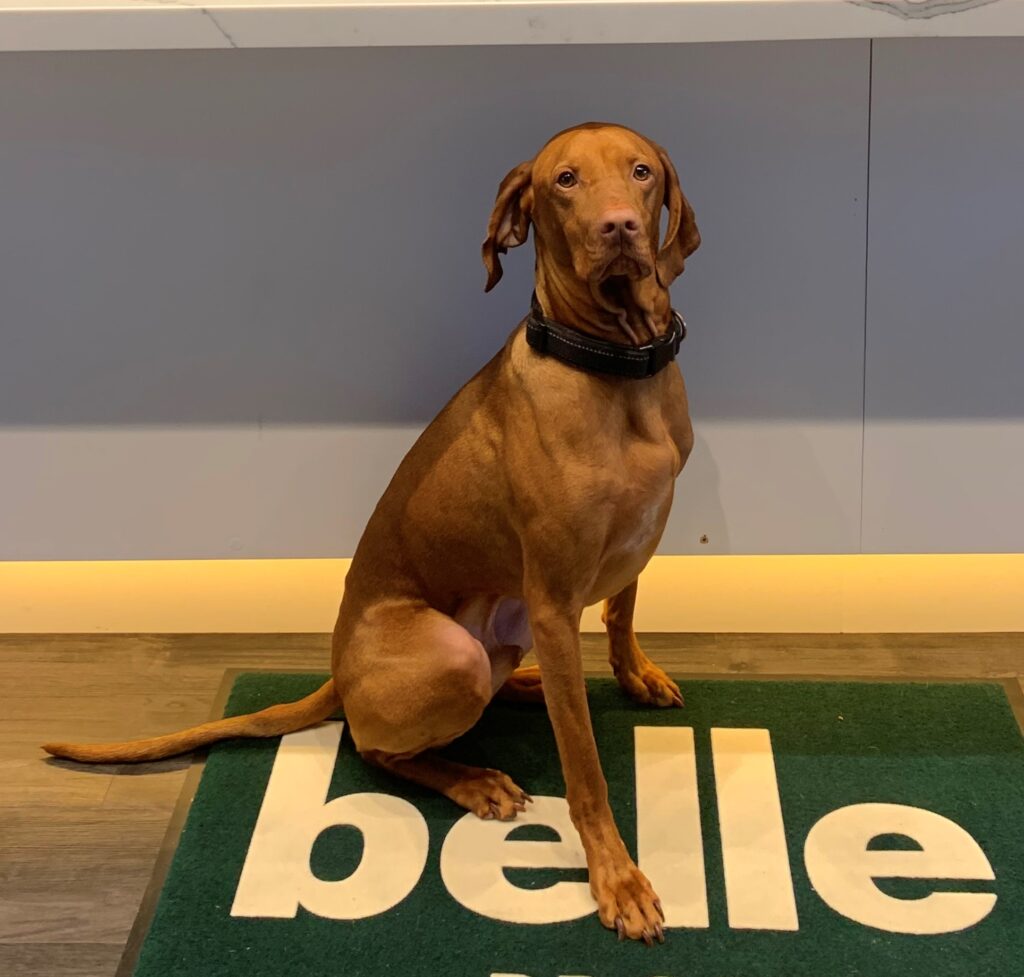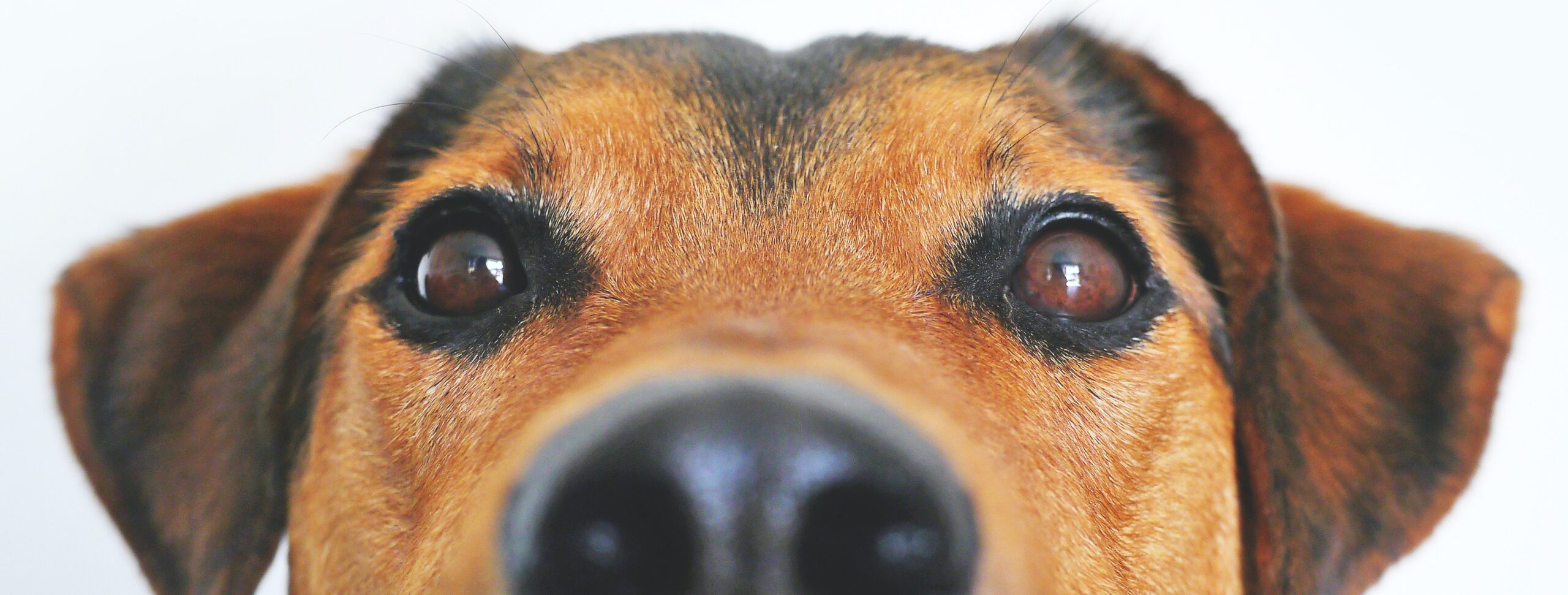February 14th, 2021Pets@Work
To get the ball rolling RSPCA CEO Dr Liz Walker chatted with Donna Kelly about the benefits of having a pet at work.
Donna: How does having a pet in the workplace help morale, mental health?
Liz: Animals are integral to the lives of Victorians – we have 6.7 million pet animals in Victoria, and around 24 million pets in Australia. That’s a lot of animal lovers. The research says pets are good for people. They bring people together during times of joy, and times of sadness. We know that pets can help improve our quality of life including reducing stress, improving health, reducing loneliness and providing companionship.
Research has shown that owning a pet can have a number of psychological benefits: Those who have pets have been shown to have higher self-esteem; pet owners report less depression and appear to cope with grief, stress and loss better than non-pet owners; pets enhance social connectedness and social skills and are great conversation starters and pets are also great caregivers. They keep us company when we’re sick or feeling down. They can make us feel safe while we’re home alone and they keep an eye on the house while we’re out.

Research has also shown that owning a pet can have a number of physical health benefits too, including: increased cardiovascular health (lower blood pressure, lower triglycerides and in men, lower cholesterol); and increased physical activity. Dogs especially help us get out and enjoy the outdoors while getting some regular exercise. They are great motivators and personal trainers, never wanting to miss a training session no matter the weather and fewer visits to the doctor.
Growing up with a dog (and other pets to a lesser extent) during infancy may help to strengthen the immune system and may reduce the risk of allergies.
Donna: Would you recommend a pet in the workplace?
Liz: I think dogs can be a wonderful addition to a workplace environment, for the dogs and people alike. It is a great way to socialise your dog and give them companionship throughout the day, and a great source of wellbeing and satisfaction amongst staff.
However, there are a few things people should consider before bringing their dogs into an office. Not every dog is suited to this opportunity, and the onus is on the owner to ensure their dog is comfortable and prepared to spend a day in an office environment. For example, a dog who is happy in an office would be relaxed and comfortable in busy environments and meeting new people. An anxious or super- energetic dog may not be as suited to spend the day in an office and may be much happier at home.
Owners should ensure that their dog is adequately house-trained, is wearing a collar and identification, has received all relevant vaccinations and is on an effective regime of flea and parasite control.

Animals should be supervised at all times when in the workplace and due diligence should be done to ensure the office is free from hazards or chewable items that might be picked up by a cheeky dog. It’s a good idea to have a specific area/bed for the dogs to sit – this also helps with hygiene and cleaning.
Make sure you take your dog for frequent toilet breaks and a walk throughout the day to help them burn off any extra energy. It’s also worth checking to see if anyone else plans on bringing their dog into work that day to make sure that any interaction is managed if necessary.
Donna: What pets work best?
Liz: Every animal is different. If you see people take their dogs into the office, chances are they have been really well-socialised and have been exposed to a wide variety of different environments enabling them to feel comfortable in new situations.
However, it really does depend on each animal’s temperament. Owners should make a decision based on their animal’s unique needs. My advice would be to start with short visits to the office to see how an animal copes, increasing the time in the office as the animal becomes used to the environment. Or stopping office visits if the office is just not where they feel happy.
As an example, I know Will’s (Belle Property Daylesford’s Will Walton), prior pooch, Ziggy. Ziggy loved being in the office – he even spent time in my office when I looked after him many years ago. Ziggy loved the people and attention and would snooze through meetings after making sure he’d said hello to everyone.
In contrast, my current dog, Princess Esther The Great, is a homebody. She will come to the office and sit quietly but her ears are back and she hunches low when people come to visit me. She finds the interruptions and other animals that we sometimes see quite overwhelming. These signs tell me that this is not her preferred place, so in her case, it is better for her to stay at home. It’s fair to say she has enjoyed the COVID-19 working from home regime.

Will Walton and Pete Douglas, of Belle Property Daylesford, have had a tradition of sharing their vizsla dogs in their real estate offices with both team members and clients enjoying the interaction.
“Currently we own Pixel who moonlights between our Daylesford and Trentham Belle Property offices. He’s even gathered up his own database of loyal clients!”










